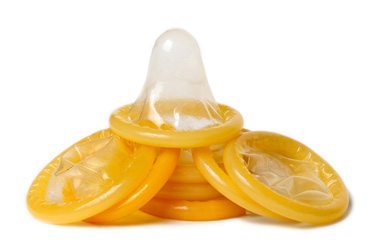Boston High Schools May Soon Make Condoms Available and Provide More Sex Ed
The Boston School Committee is considering adopting a new policy that would add sexuality education and other health courses and make condoms available at all high schools in the city.

The Boston School Committee is considering adopting a new policy that would add sexuality education and other health courses and make condoms available at all high schools in the city. The move to change these policies comes as the city is seeing high rates of sexually transmitted infections (STIs), especially chlamydia, among teens. In 2012, there were 1,249 cases reported among 15- to 19-year-olds in Boston.
Currently the city’s schools are operating under a policy that was controversial when it was passed in 1994. It allows for condom availability only at the 19 schools that house school-based health centers (there are a total of 32 high schools in the city). At the time, Mayor Thomas M. Menino pushed for the policy out of a concern over rising HIV-infection rates among teenagers in the city. The policy passed despite staunch opposition from the previous mayor and the Catholic Archdiocese of Boston.
It has not been updated in nearly a decade, however, and many people in the city, including students, think it does not go far enough. According to the Boston Globe:
In the Fall of 2010 young people from the Hyde Square Task Force in Jamaica Plain launched an aggressive campaign to persuade school officials to offer free condoms in all high schools, and to increase the rigor and availability of sexual health education courses, which they said had been dropped from several schools because of budget cuts or MCAS [standardized test] prep.
In fact, only eight of the 32 high schools in the city currently offer sex education.
The school committee is now considering a number of these proposals. Under the suggested condom policy, students at all city schools would be able to receive condoms either from school staff, the Boston Public Health Commission, or a community health service partner. Any student receiving condoms would be given counseling on safer practices at the same time. Parents who do not want their children to receive condoms could opt out of the program.
This policy would be part of a larger health and wellness program, which would apply to all grade levels and include improved physical education classes, education about nutrition, bullying prevention programs, and sexuality education.
Members of the school committee seemed supportive of these changes, including condom availability, when they met at the beginning of the month. The committee’s chairman, Michael O’Neill, told the Globe, “Many members spoke positively about the comprehensiveness of the policy and acknowledged the reality our students face.” No one spoke out to oppose changing the policy.
The school committee is set to meet again on June 19.

